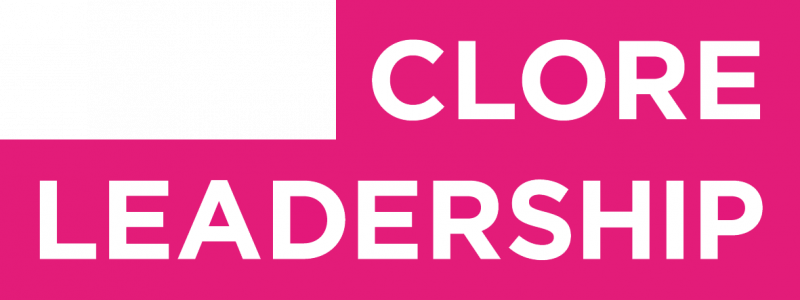
When the best response is an angry one
We should pay attention to what makes people angry – it points the way to growth and real change, says Hayley Williams-Hindle.
Anger is useful: it invites the other person to give weight to our argument. So it can be helpful to consider why some angry voices are allowed, and others not. Attending to angry voices can show us where the sharing of power is stalled.
We work in institutions that espouse values of truth and representation. But if we examine our own bias, we might find we allow anger from our ‘tribe’ about things that don’t threaten it and simultaneously deny the validity of anger that challenges personal beliefs. We can see this dynamic at play in the Brexit debate – and if we’re honest, we’ll see it applied to dissenting voices in our workplaces. Off the stage and outside the gallery, the arts rarely seeks fresh opinion with positive intent. We notice it, but we don’t face and breathe with it, and our organisations are poorer for it. Is it any surprise many have yawning gaps in representation?
It’s still common, for example, for recruitment conversations to value ‘culture fit’ above other considerations. But this is antithetical to genuine inclusion. We assume similarity will support cohesion. But this depressingly British approach leaves a legacy of quiet seething and passive aggression, and a stubbornly homogenous workforce.
This depressingly British approach leaves a legacy of quiet seething and passive aggression, and a stubbornly homogenous workforce
The radical insight is that we must actively seek difference to accelerate progress. When this challenge is embraced, vulnerability and authenticity thrive. This is the groundwork of creativity and innovation; the space where voiced differences break entrenched ways of doing. Let’s shake off nostalgia and move on from the era of hierarchy and conformity.
It requires curiosity and responsibility to hold in check the groupthink that comes from our natural, oxytocin-generated tribalism. But we’ll move faster towards a truly representative workforce when we encourage difference and stop censoring the anger that comes from injustice and disenfranchisement. So often change is sacrificed, still, for the greater pull of power. What is the appropriate response to such institutional and private selfishness, if not anger?
Inspirational anger
Swedish teenager Greta Thunberg illustrates the power of difference. She captured global attention in 2019 because of her anger directed at those with power who fail to enact climate-saving policy. Thunberg is famously autistic. A great strength of this neurotype, and at the same time an Achilles’ heel, is to care less for the societal norms that make us afraid to speak up for fear of being cast out of the group – even as we are in fact frequently cast out for violating those norms. Anger teaches us where balance is not yet easy. Does anger – your own or others’ – cause you unease? Then pay attention to it – there’s good information there.
What implications are there here for recruitment practices? We can start by asking how we sit with the discomfort of facing ‘other’. Are we prepared to do the work of embracing the challenge of, well, challenge? Dare we say to candidates, ‘You have qualities and insight that we want to enrich our organisation: we need your voice to challenge and keep us relevant’?
Laura Bambach, founder of the non-hierarchical women’s advocacy organisation SheSays, speaks compellingly about the creative edge that comes from a rich mix of different people. If cultural institutions grow this way from the inside out, audience engagement strategies have an integrity that can never be matched by isolating those conversations from hiring policies. A broader view of the richness of human-ness allows us all to express the complexity and nuance of our experience and opinion. When individuals are expected to fulfil a tokenistic nod to diversity, we diminish their humanity – and we ought to recognise the righteous anger this provokes.
Architecture of listening
Research shows that organisations talk a lot, but don’t do much real listening. Communications academic Jim Macnamara argues organisations should create an ‘architecture of listening’ to support two-way conversations and become relevant to people who don’t feel welcome. And design company IDEO identify three behaviours necessary to the success of these approaches – learning, curiosity and vulnerability.
Change often comes at a cost to comfort – but resisting it comes at a cost to personal and organisational integrity. Maturity involves holding our own ideas and beliefs separate from our values. This allows us to evolve and grow without feeling threatened. We can attend to whatever anger – personal, societal, or organisational – is asking of us. This requires consideration, a shift in perspective and a yielding of power and control. It’s hard mental work to wrangle with inertia, to acknowledge and embrace the discomfort that comes before changed habits of thought and action. But we don’t have the luxury of putting away anger just yet.
Hayley Williams-Hindle is a brain and behaviour change practitioner, and coaching and neurodiversity advocate. A 2018/19 Arts Council England Clore Fellow, Hayley is part of the 15th cohort of Clore Leadership Fellows.
This article is based on research carried out for two Clore Leadership provocation papers:
Clore Leadership
Clore Leadership was launched in 2003 by the Clore Duffield Foundation, to support and provide the professional development required to sustain the UK’s great cultural institutions, and international reputation for artistic excellence and innovation.
In the sixteen years since, the programme has succeeded in creating a sought-after cadre of creative and cultural leaders, and inspired investment in leadership on the part of governments, agencies, foundations and charities both nationally and internationally. It was and remains an exemplary intervention in our sector – Clore Leaders, some 2,220 alumni, are thriving and the investment in them is reaping significant rewards.

Join the Discussion
You must be logged in to post a comment.